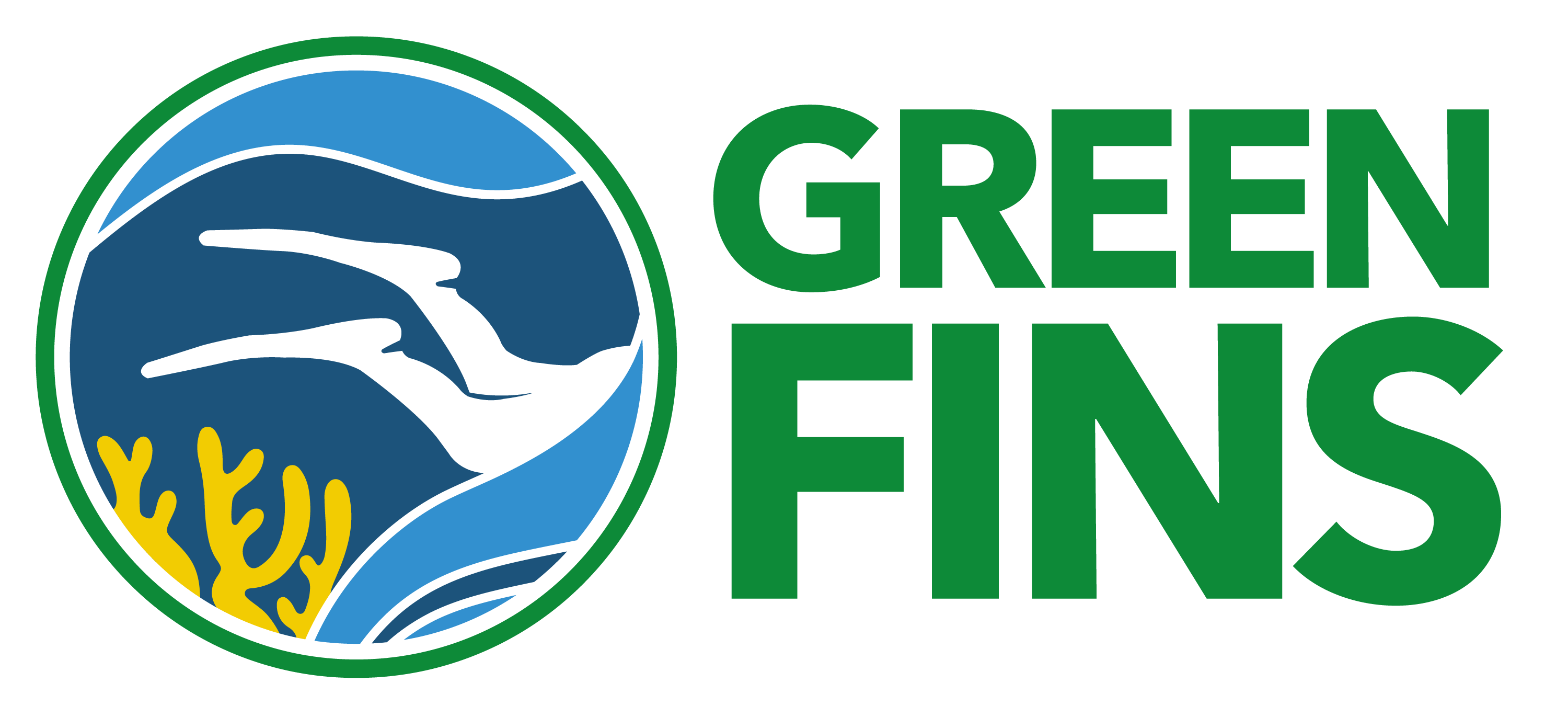In November 2021, Costa Rica joined the Green Fins network as an active location, alongside 13 other countries choosing to implement the Green Fins Code of Conduct. Costa Rica is the first country on the American continent to adopt Green Fins environmental standards to reduce the threats associated with diving and snorkelling on marine ecosystems.
We had a chat with Jula, Creative Consultant at The Reef-World Foundation (the UK charity that spearheads the Green Fins initiative around the world). Alongside one of the directors of Reef-World, JJ, she travelled to Costa Rica to train a group of passionate local Government and NGO staff to become Green Fins assessors. Jula is from Costa Rica herself but has worked around the world and is now based in the UK. We chatted to her about what it was like to get back into fieldwork post-pandemic, visiting her homeland to introduce Green Fins and the challenges unique to Costa Rica regarding conservation.
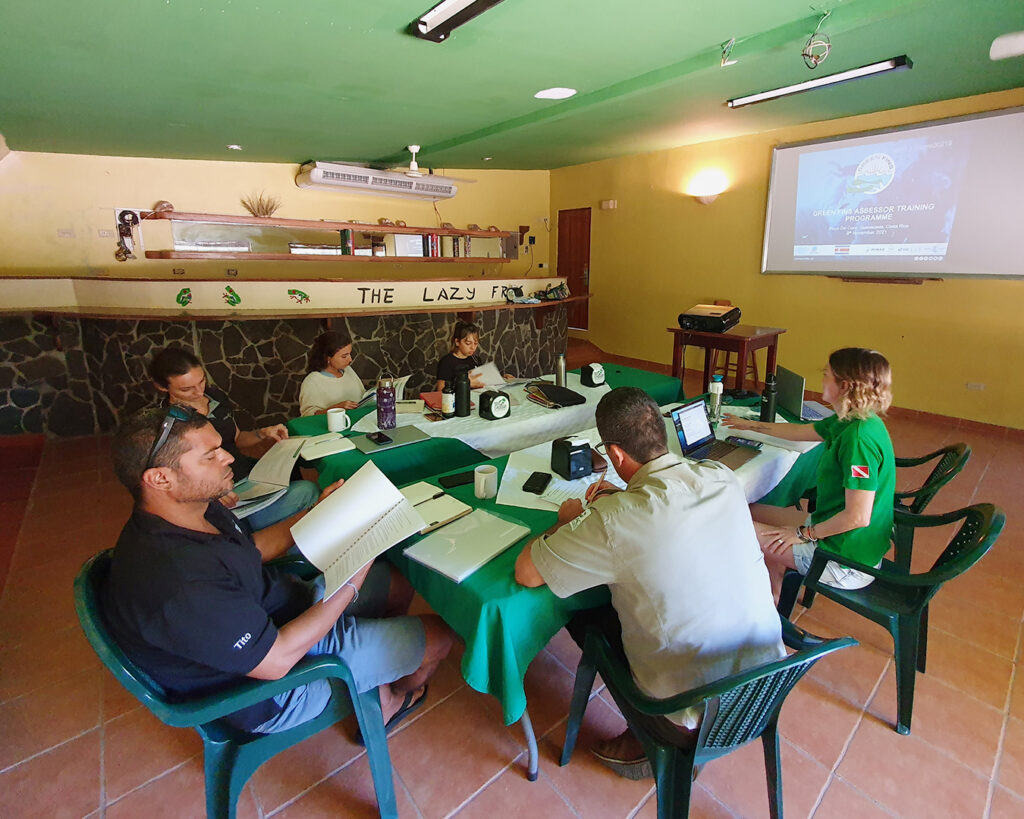
Why is it so important to have Green Fins implemented in Costa Rica?
Currently, besides Isla del Coco (Cocos Island), there aren’t many regulations in Costa Rica’s marine areas in comparison to the protection we have on terrestrial areas. The implementation of Green Fins will help elevate Costa Rica’s standards on marine environmental protection and how we manage our coastal resources, and how best to preserve them.
Does Costa Rica face any particular environmental challenges?
Yes, especially related to marine conservation. Compared to the protected areas on land, the few marine protected areas have limited regulations for them. We face issues around illegal fishing and shark finning. So yes, there’s still a lot of work to do, especially considering that Costa Rica has such a big Exclusive Economic Zone (EEZ)*.
The government has recently focused more on the ocean, being involved with the 30×30 global initiative (to protect 30% of Earth by 2030) and expanding this new protected area towards the Galapagos. I am intrigued to see how they will implement this — it is a good start.
We have more marine areas than land; therefore, we need to increase and improve the protection of our marine resources even more!

How does this trip help with Reef-World’s conservation mission?
I think it’s incredible that we are continuously expanding to new cultures and countries because of increased tourism in these areas. It’s a remarkable achievement not only for Reef-World but also for Costa Rica. Knowing that the country doesn’t have many regulations for the dive industry and it’s growing fast, it’s great that we’re helping the country towards its goal to protect our ocean and reduce threats to biodiversity.
How long was the implementation of Green Fins in Costa Rica in planning?
It feels like such a long time due to the Covid-19 pandemic! Mauricio from the National System of Conservation Areas (SINAC) met Chloe a couple of times during the International Coral Reef Initiative (ICRI) meetings in Australia. We were then reacquainted in 2019 in San Jose. 2020 was supposed to be the year to kick things off, but we had to delay the plan until 2021 because Covid restrictions continued to halt the global tourism industry and world travel. It was certainly worth the wait!
What was it like to be doing on-field training again after two years of the pandemic?
I was very very nervous; questioning whether I would be able to remember everything well after so long. It wasn’t only since the pandemic — I did my last fieldwork in early 2019! So, this training course was also a bit of a refresher for me. Luckily, it all came back to me once we were there!
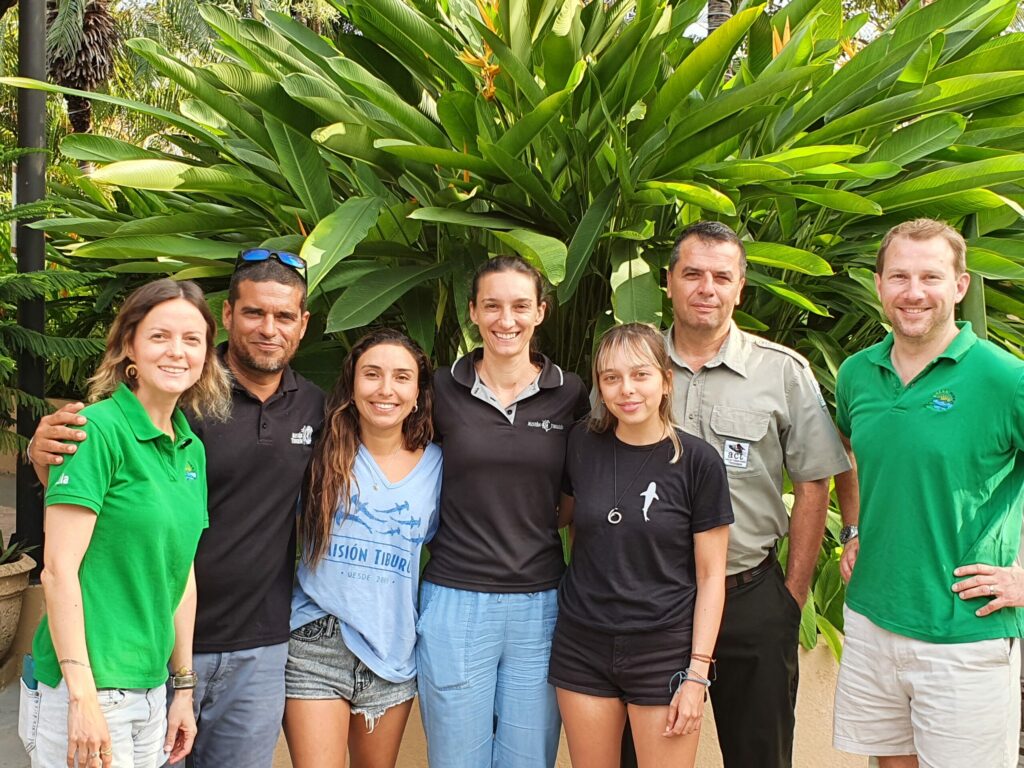
Why was this training so special for you personally?
I have visited many locations worldwide to conduct Green Fins training, so the most special part was that it was in my home country! It’s where I started diving, and it’s great to be able to come back full circle to help my country work towards a more sustainable diving industry, using all the skills I have learnt during my time with The Reef-World Foundation. That made it exciting for me!
Also, it was inspiring to work with the team of assessors in Costa Rica. With their previous work experience, they are very in tune with the industry. They absorbed all the information quickly and are a very skilled and passionate group of people.
How do you feel about the implementation of Green Fins in Costa Rica — your home country?
It’s a dream come true to come back and do this in my home country. To help protect the ocean that saw me grow up. I look forward to going back and seeing everything in place and for there to be lots of Green Fins dive centres in Costa Rica. I also really enjoyed delivering the training in Spanish. It makes it much easier to connect to people when you are from the same country and speak the same language. It gave me a warm and fuzzy feeling to see the passion and the pride from the people involved.
Can you elaborate a little on what goes on during the training?
As an assistant trainer, I support Reef-World’s director, JJ, throughout the whole training delivery. During the in-class section of the training, I was there to help with translations, getting materials ready, general logistics, etc. Together we deliver the role-playing section, for example, where we look at how to ask the right kinds of questions to a boat captain or a dive guide about certain aspects. We did some role-playing underwater on the skills day — we pretended to be misbehaving divers, going against our will! My favourite part is to guide the participants in their first two assessments, where you take everything you learn in class into real life.
I enjoyed seeing people absorb the information as each day went by. I remember when I did my Green Fins assessor training, there was so much information to take in! But as the course goes on, you see the assessor candidates starting to pick up on things more and more.
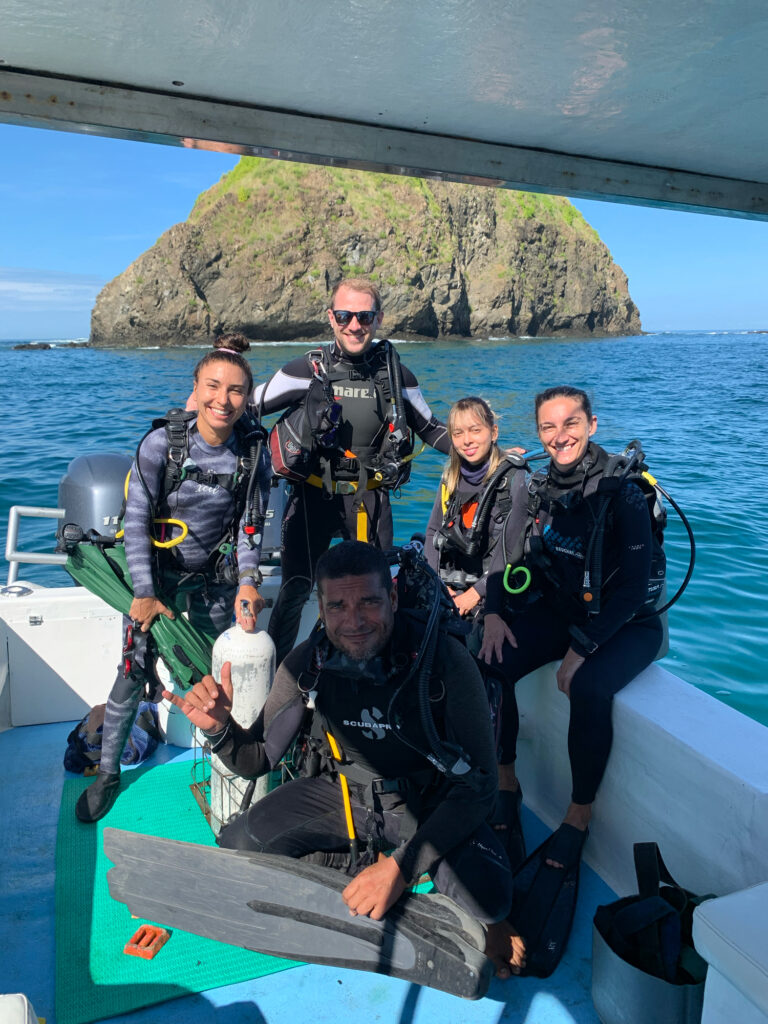
Can you tell us about the Green Fins Costa Rica team members? Did you learn anything specific from them or admire any qualities in them?
They were all very influential people! Ilena & Andrés started Misión Tiburón, the NGO implementing Green Fins in Costa Rica, over a decade ago. They are very well known to the divers in Costa Rica. They organise educational diving experiences where people help them with counting sharks and rays every year. While we were doing the dives for the assessments, divers came over to Ilena, saying, “Oh, I follow you on social media, I follow your work, it’s an honour to meet you!”. It was nice to see people in my country coming and showing appreciation for conservation work.
Adriana and Daniela are both very impressive women. Adriana is a professional diver and instructor, and she researched carrying capacity in Isla del Caño. Daniela has a lot of valuable knowledge about conservation and how much more effort is needed. She also has experience working with the park rangers in Isla del Coco and understands the pressure that lies on their shoulders. It’s interesting to see how their work experience aligns so well with Green Fins. I think they will be great sustainability leaders in Costa Rica’s dive industry.
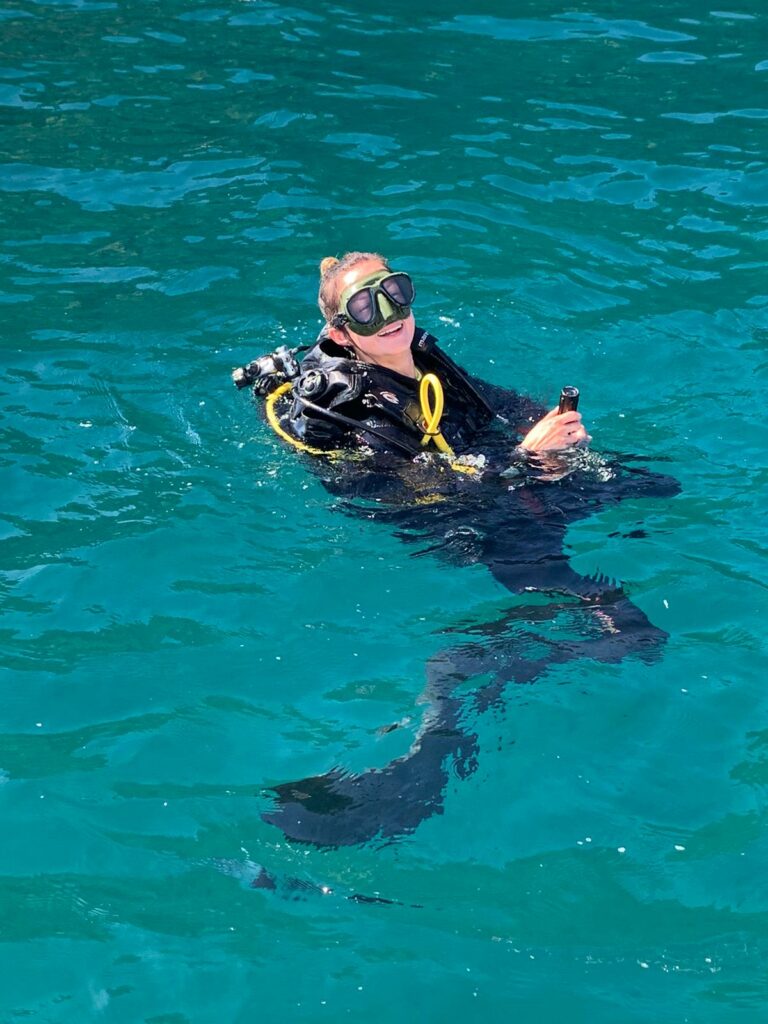
What surprised you most on this trip?
The water was so cold! The ever-changing currents in the Pacific Ocean mixed with the winds that hit the Pacific coast of Costa Rica lower the temperatures very fast, so yeah, I froze. I had to wear a 5mm wetsuit for the whole week. I’ve completely forgotten about that!
Is there an unforgettable experience/memory from this trip?
It was very encouraging to see the fantastic work this group of local conservationists are doing to protect and conserve our oceans. They all have different perspectives and are all very passionate. It was great to work with them — gives me hope for the future.
It connected me back to my roots. I originally left home to gain vital experience to be able to come back and work in my country. Oh, it brings a tear to my eye! It was also nice to reconnect to the Costa Rican conservation world, which I felt very disconnected from for living far from home for many years.
*EEZ is an area of the ocean, generally extending 200 nautical miles (230 miles) beyond a nation’s territorial sea, within which a coastal nation has jurisdiction over both living and nonliving resources. Sourced from NOAA
